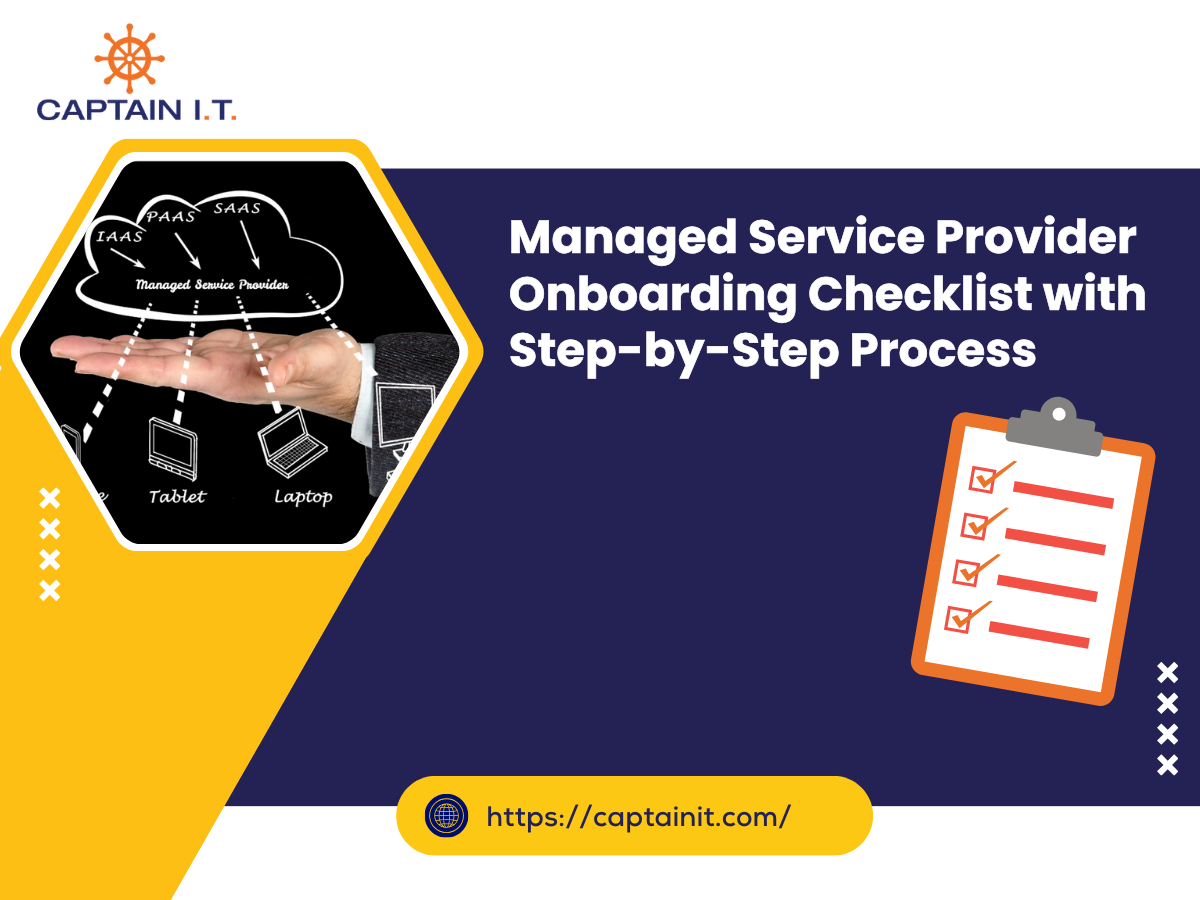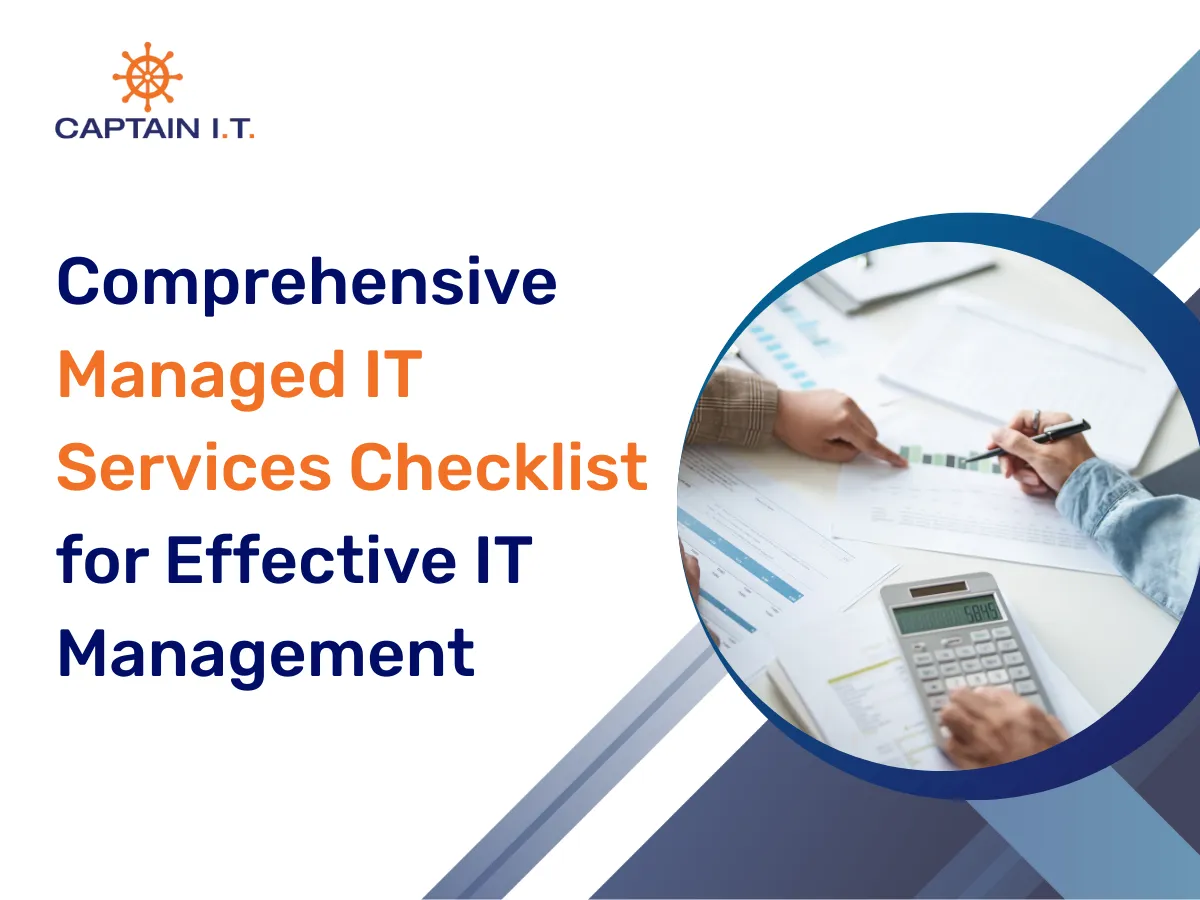Ever thought about the safety of your digital assets? What if we tell you that no small business is too small to be on the radar of cybercriminals? Your data stored in the farthest corners of your server could still be an open treasure chest for hackers. This is where the concept of an IT security audit for small businesses kicks in.
Understanding the Concept of IT Security Audit
An IT security audit is your digital health check-up, an essential exercise that meticulously examines your business’s IT systems, networks, and processes to detect potential vulnerabilities and risks. It’s a deep dive into everything ranging from your current access controls, data encryption methods, incident response protocols, to your compliance with proper industry regulations. These audits aren’t designed to spook you, but rather to pinpoint weaknesses or gaps in your digital security armor. This enables your business to bolster its defenses, secure its valuable data, and meet necessary compliances, giving you a peace of mind.
Why Small Businesses Need IT Security Audits
Now, if you’re a small business owner, you might think security audits are overkill. Do you really need it? The answer is a resounding ‘Yes’. Small businesses are often less prepared for cyber threats than larger corporations, primarily due to limited resources and expertise. Security audits can be a game-changer for your operations, improving your cybersecurity framework, minimizing risks, and building customer trust. In short, it’s a power play that equips you to thrive in an increasingly digital business environment.
Security Audit at a Glance:
- Identifies vulnerabilities like outdated software, misconfigurations, or weak access controls
- Ensures compliance with industry regulations and standards to avoid legal repercussions
- Evaluates current incident response capabilities and provides recommendations for improvement
- Fosters customer trust by demonstrating a commitment to protecting customer data
- Gives you a competitive edge by highlighting your commitment to cybersecurity
To wrap it up, an IT security audit provides a clear roadmap for small businesses to identify and eliminate potential cybersecurity threats. Let’s give your business a fighting chance with a strong security basis!
The Cost of an IT Security Audit for Small Businesses
When it comes to protecting your business, the cost of an IT security audit should not be a deterrent. A robust IT security audit is a necessary investment to safeguard your business from potential cyber threats.
Factors Influencing the Cost of an IT Security Audit
The cost of an IT security audit for small businesses can vary depending on several factors. This typically includes the size of your business, the complexity of your IT infrastructure, and the depth of the audit required. As a guideline, IT security audits generally range from $700 to $2500.
While this might seem like a substantial amount, the potential cost of dealing with a cyber attack can be much more devastating. Cyber attacks could result in loss of data, downtime, damage to your reputation, and potentially hefty fines for non-compliance with data protection regulations.
As Ravi Machani, our expert at Captain IT emphasizes, “The cost of an audit is a small price to pay for the peace of mind and protection it provides.”
The Long-Term Savings of Investing in IT Security Audits
When considering the cost of an IT security audit, it’s essential to think about the long-term savings. Regular IT security audits help identify weaknesses and vulnerabilities in your system before they can be exploited. This proactive approach can save your business from the potentially catastrophic effects of a cyber attack.
By investing in an IT security audit, you’re also investing in the longevity of your business. As we have witnessed time and again, organizations that invest in robust IT security measures are better positioned to withstand cyber threats and bounce back from attacks.
Moreover, these audits can help your business align with regulatory standards such as ISO 27001 and 27002, helping you avoid potential fines and penalties.
In the grand scheme of things, the cost of an IT security audit is a drop in the ocean compared to the potential financial and reputational damage a cyber attack can cause. As a small business, investing in an IT security audit is not just a smart move, it’s a necessary one.
As we move forward in the digital age, cybersecurity is not a luxury – it’s a necessity. The cost of an IT security audit is a small price to pay for the safety of your business and the trust of your customers.
How to Conduct an IT Security Audit for Small Businesses
As your trusted IT partner, we at Captain IT understand that conducting an IT security audit for small businesses can feel like a daunting task. But with a structured approach and the right expertise, it can be a manageable process that provides immense value to your business. Here’s a step-by-step guide on how to conduct an IT security audit.
Defining the Scope and Objectives of the Audit
The first step in conducting an IT security audit is defining its scope and objectives. What are the critical assets you want to protect? Is it customer data, payment processing systems, or the integrity of your website? Understanding what you need to safeguard helps set a clear direction for the audit. The objective is not just to uncover vulnerabilities, but also to ensure compliance with industry regulations and align IT processes with business goals.
Identifying the Audit Team
The next step is to identify the audit team. This can be your internal IT team, or you can enlist the help of an external expert like us at Captain IT. A seasoned auditor will have the necessary experience and expertise to identify potential risks and recommend suitable security measures.
Gathering Information for the Audit
The audit process involves gathering comprehensive data about your IT infrastructure and processes. This includes examining how you handle customer data, process payments, and adhere to internal security policies. It’s also essential to understand your existing security measures and potential risks. Information gathering is a crucial step as it forms the basis for risk and vulnerability assessments.
Assessing the Risks
Once the information is gathered, the auditor will assess potential threats to your IT infrastructure. This involves analyzing the possibility of data breaches, website takeovers, or unauthorized access to sensitive data. The likelihood and impact of each threat are evaluated, taking into account the sensitivity of data and potential attack vectors.
Identifying Security Gaps and Vulnerabilities
The next step is to identify security gaps and vulnerabilities. This involves deploying automated tools to scan your infrastructure and verify these vulnerabilities manually. This process helps uncover weaknesses, such as outdated software versions or misconfigurations, that could potentially be exploited by cybercriminals.
Developing Recommendations
Finally, the auditor will develop recommendations to address the identified risks and vulnerabilities. This could include strengthening security controls, implementing new security measures, or improving compliance processes. The recommendations aim to mitigate potential threats and enhance the overall security of your IT infrastructure.
Conducting an IT security audit is a strategic move that helps small businesses protect critical assets and avoid costly security incidents. At Captain IT, we are committed to helping businesses navigate this process and ensure a secure and robust IT environment. Get in touch with us today to learn more about our IT security audit services.
Common IT Security Audit Standards for Small Businesses
As we dive deeper into IT security audits for small businesses, it’s crucial to familiarize ourselves with the recognized industry standards. These standards provide a framework for managing information security risks and ensuring the confidentiality, integrity, and availability of data.
Understanding ISO 27001 and 27002 Standards
ISO 27001 is an internationally recognized standard that provides a framework for an Information Security Management System (ISMS). It sets out the criteria for the establishment, implementation, and maintenance of an ISMS. The standard takes a risk-based approach and can be applied to any business, regardless of size or industry.
On the other hand, ISO 27002 is a companion standard to ISO 27001 and provides practical guidance on implementing the controls outlined in ISO 27001. It covers topics such as access control, cryptography, physical and environmental security, and operations security.
The adoption of these standards demonstrates a commitment to information security and can be instrumental in building trust with stakeholders, including customers, partners, and regulators.
The Importance of an Information Security Management System (ISMS)
An Information Security Management System (ISMS) is a systematic approach to managing sensitive company information. It includes policies, procedures, and other controls involving people, processes, and technology to help organizations protect and manage their data.
Implementing an ISMS has numerous benefits. It helps identify, manage, and reduce the range of threats to which your information is subjected. This not only safeguards your business data but also reassures customers that their personal and financial information is protected.
An ISMS also helps ensure that your business complies with legal and regulatory requirements, reducing the risk of facing penalties or damage to your reputation. It provides a framework for continual improvement, helping your business adapt to the changing threat landscape.
At Captain IT, we can help your business understand and implement these standards. Our team of experts can guide you through the process of setting up an ISMS, ensuring that it’s tailored to your business’s unique needs and risks. Reach out to us to learn more about how we can help secure your business.
Key Elements of an IT Security Audit for Small Businesses
The process of conducting an IT security audit for small businesses involves a comprehensive examination of various key elements. Let’s explore these essential components that collectively contribute to the overall security posture of your business.
Cybersecurity Risk Assessment
A cybersecurity risk assessment is the first step in identifying potential threats and vulnerabilities within your business. It involves systematically evaluating all aspects of your IT infrastructure, including software, hardware, and network configurations. Through this process, we can identify outdated software, weak access controls, and other vulnerabilities that may expose your business to security risks.
IT Infrastructure Audit
An IT Infrastructure audit involves a thorough examination of your entire IT environment. This includes your hardware, software, networks, and data centers. The goal here is to ensure that your infrastructure is not only robust and efficient but also secure and compliant with industry standards. At Captain IT, we provide comprehensive IT consulting services to help businesses optimize their IT infrastructure while maintaining a strong security posture.
Business Continuity Plan: Data Management and Disaster Recovery
A crucial part of any IT security audit for small businesses is the evaluation of the business continuity plan, particularly data management and disaster recovery strategies. This involves assessing how your business handles data, both in terms of storage and in the event of a disaster. We help businesses develop robust strategies for data backup and recovery, ensuring minimal downtime and quick recovery in the face of unexpected incidents.
Performance and Efficiency Analysis
A performance and efficiency analysis involves assessing the speed, reliability, and efficiency of your IT systems. Slow, unreliable systems can negatively impact productivity, while inefficient systems can lead to increased costs and security risks. At Captain IT, we help businesses streamline their IT operations, enhancing performance efficiency while ensuring optimal security.
Industry Regulatory Requirement Audit
Lastly, an IT security audit should also include an industry regulatory requirement audit. This involves checking your compliance with relevant industry regulations such as the General Data Protection Regulation (GDPR) or Payment Card Industry Data Security Standard (PCI DSS). Non-compliance can result in hefty fines and damage to your business’s reputation. At Captain IT, we ensure that your business is not only compliant with these regulations but also prepared for any future changes in these standards.
In conclusion, an IT security audit for small businesses is a comprehensive process involving the assessment of various key elements. By properly conducting this audit, businesses can identify vulnerabilities, enhance their security measures, ensure regulatory compliance, and ultimately safeguard their operations in the digital landscape. At Captain IT, we are committed to helping small businesses achieve these goals through our expertise and personalized IT solutions.
The Benefits of IT Security Audits for Small Businesses
Navigating the digital ecosystem can be complex, especially for small businesses with limited resources. This is where an IT security audit for small businesses comes into play. The benefits are manifold, and we’re here to break them down for you.
Identification of Vulnerabilities
The first significant benefit of an IT security audit is the identification of vulnerabilities. Small businesses might not have the in-house expertise to thoroughly assess their security setup. An IT security audit can shed light on areas such as outdated software, weak access controls, and other potential risks that might go unnoticed. By identifying these vulnerabilities, businesses can take proactive steps to fortify their defenses, reducing the risk of data breaches and financial losses.
Compliance with Regulations
Compliance with industry regulations is essential for small businesses to avoid penalties and foster trust with customers. A security audit ensures adherence to regulations such as the General Data Protection Regulation (GDPR) or Payment Card Industry Data Security Standard (PCI DSS). By proving compliance, businesses can avoid costly penalties and instill confidence in their customers.
Improved Incident Response
An effective incident response plan is vital for any organization. For small businesses, a security audit can evaluate current response capabilities and provide recommendations for improvement. This can result in more efficient management of security incidents, minimizing impact, and enabling quicker recovery.
Building Customer Trust and Reputation
Data breaches can severely damage a business’s reputation. However, undergoing a security audit demonstrates a commitment to protecting customer data. This can instill trust in customers, enhancing the company’s reputation, and ultimately attracting more security-conscious customers.
Gaining a Competitive Advantage
In today’s competitive landscape, a robust security setup can set a small business apart. Showcasing the results of a security audit can highlight a business’s dedication to cybersecurity. This unique selling point can differentiate a business from competitors and attract customers concerned about data privacy.
Cost-Effective Risk Mitigation
Finally, an IT security audit for small businesses is a cost-effective way to mitigate risks. By identifying threats before they become a problem, businesses can avoid the potentially high costs associated with data breaches and system downtime.
At Captain IT, we understand the importance of IT security audits for small businesses. We are dedicated to helping you navigate the complexities of the digital landscape, enabling you to reap the benefits of a secure and efficient IT setup. Whether it’s identifying vulnerabilities, ensuring regulatory compliance, or enhancing incident response, we’re here to help you every step of the way.
Conclusion
The Role of IT Security Audits in Ensuring Business Continuity
In conclusion, IT security audits for small businesses play an instrumental role in ensuring business continuity. A robust IT security audit is like a health check for your business’s digital environment. It systematically assesses everything from access controls and data encryption to incident response protocols and compliance with industry regulations. This process helps to identify potential vulnerabilities and risks, allowing us at Captain IT to formulate strategies to fortify your digital defenses, protect your valuable assets, and maintain regulatory compliance.
Moreover, robust IT security practices foster trust with your customers. By demonstrating your commitment to protecting customer data, you enhance your reputation in the market and attract security-conscious customers. In a highly competitive business landscape, a strong IT security posture can provide a unique selling point that sets your business apart.
Why Small Businesses Should Prioritize IT Security Audits
Small businesses should prioritize IT security audits because of the significant impact they have on operations, customer trust, and long-term success. With the increasing prevalence of cyber threats, businesses can no longer afford to overlook the importance of cybersecurity. A security breach can lead to substantial financial losses, damage to your reputation, and even the closure of your business.
Furthermore, small businesses often lack the necessary resources and expertise to handle cybersecurity independently. With IT consulting services, you can leverage the expertise of seasoned professionals to navigate the complexities of IT security. At Captain IT, we are dedicated to helping you safeguard your business. We identify potential vulnerabilities, implement effective security measures, and provide ongoing support to ensure your business is always protected.
In an era of growing digital interconnectedness, prioritizing IT security audits is not just a smart business move—it’s an essential one. By investing in an IT security audit, you’re investing in the future of your business.
Visit our cybersecurity services page to learn more about how we can help protect your business. For additional insights and tips, check out our blog. We’re here to help your business navigate the complexities of cybersecurity, ensuring you can operate with confidence in the digital world.






